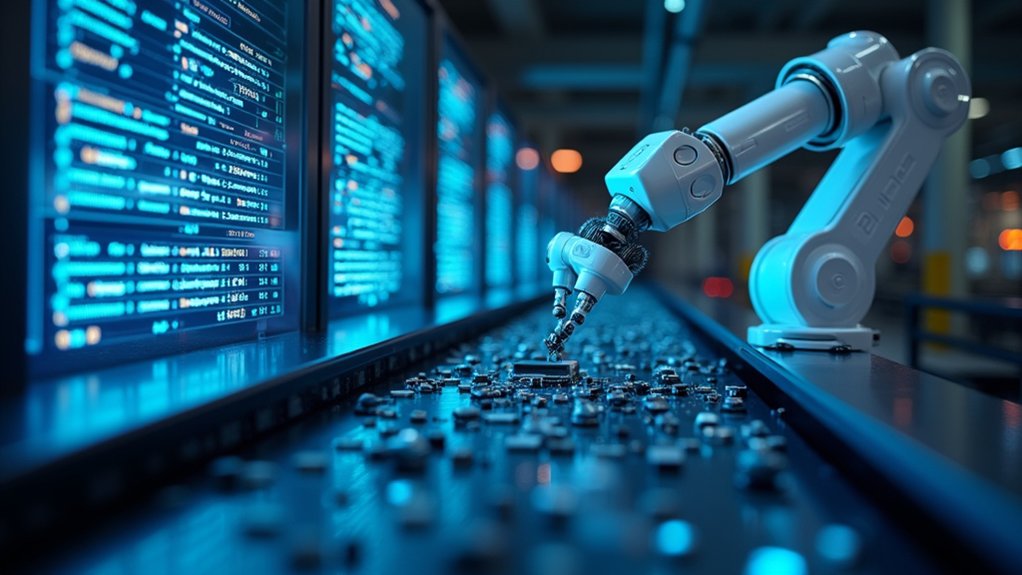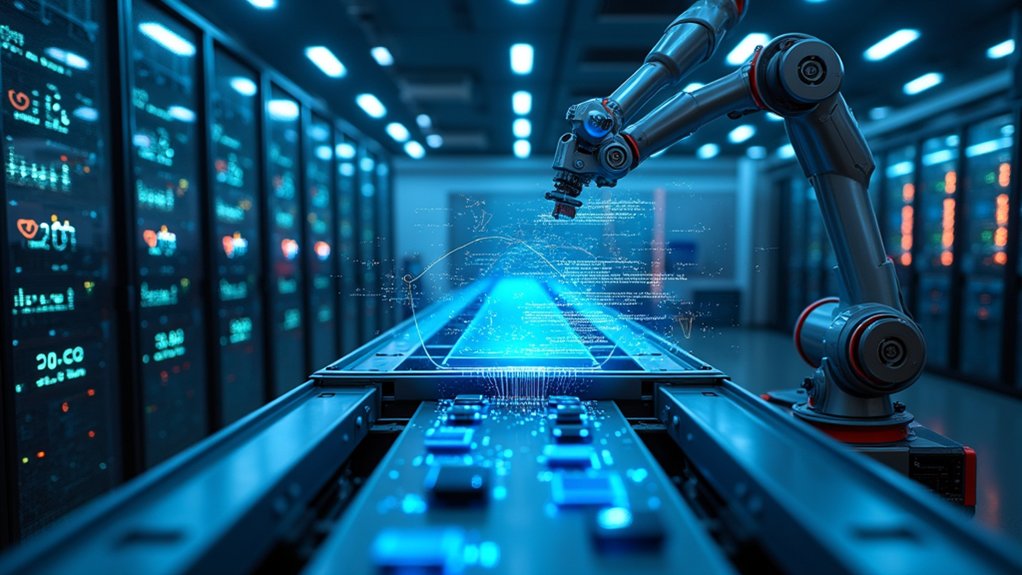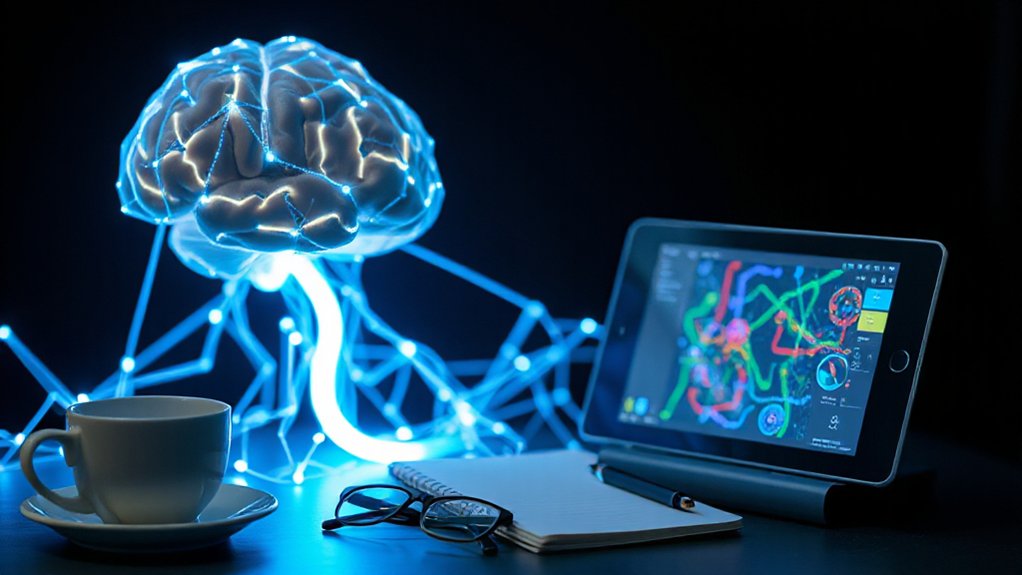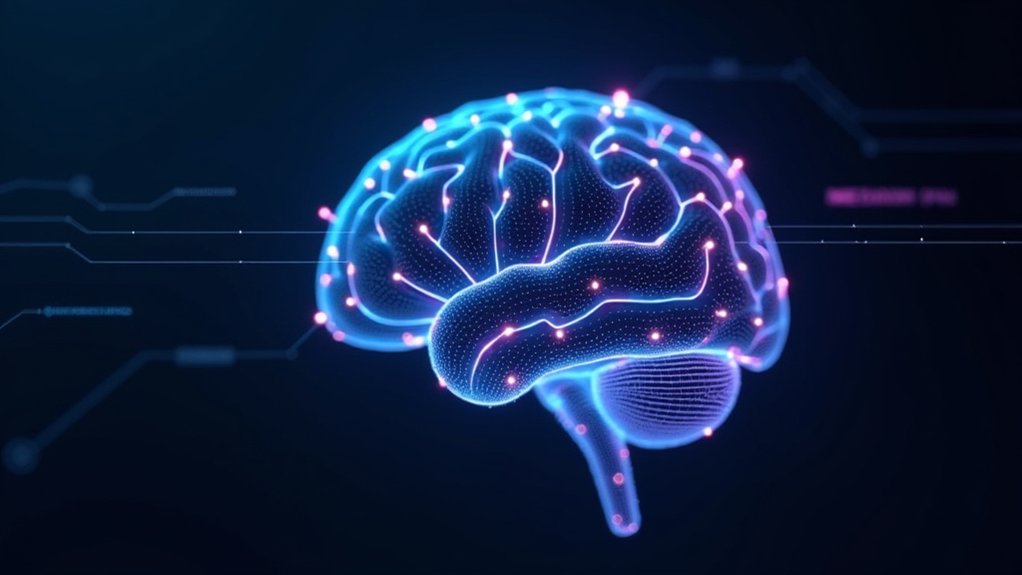AI automation combines artificial intelligence with automated systems to perform complex tasks without human intervention. It uses machine learning, natural language processing, and computer vision to analyze data and make independent decisions. Unlike traditional automation that follows fixed rules, AI automation adapts and learns. It increases productivity, reduces errors, and lowers costs for businesses. The technology continues to evolve with more explainable systems and integration with IoT devices.

As businesses look for ways to improve efficiency, AI automation is quickly becoming a game-changer across industries worldwide. This technology combines artificial intelligence with automation systems to perform complex tasks that once required human intervention. Unlike traditional automation that follows fixed rules, AI automation uses machine learning to analyze data, adapt to new situations, and make decisions on its own.
AI automation revolutionizes industries by performing complex tasks with machine learning, unlike rule-based traditional automation.
The core elements of AI automation include machine learning algorithms, natural language processing, computer vision, robotic process automation, and data analytics. These components work together to create systems that can learn from experience and improve over time. For example, a customer service chatbot can learn from past conversations to provide better responses to future customer inquiries.
Companies implementing AI automation often see significant benefits. These include higher productivity, fewer errors, lower operational costs, and better decision-making capabilities. AI automation helps create intelligent workflows that streamline manual, routine tasks while reducing human error across various business processes. In healthcare, AI helps doctors diagnose diseases and discover new medicines. Banks use it to spot fraud and manage financial transactions. Factories employ AI for equipment maintenance and quality control. Retailers improve inventory systems and offer personalized shopping recommendations. With AI projected to take over 30% of tasks across various sectors within the next year, businesses are increasingly adopting automation solutions.
Despite its advantages, organizations face several challenges when adopting AI automation. Data quality issues, integration problems with existing systems, and ethical concerns about AI bias can complicate implementation. Many companies also struggle with workforce skill gaps and the high initial costs of setting up these systems. Businesses that fail to adopt AI technologies risk falling behind in the digital economy, as competition becomes increasingly technology-driven.
Looking ahead, the field of AI automation continues to evolve rapidly. New trends include more explainable AI systems, integration with Internet of Things devices, and advanced natural language generation. Edge computing, which processes data closer to where it's created, is gaining popularity for AI applications.
For successful implementation, companies typically need to clearly define their automation goals, guarantee high data quality, regularly monitor AI performance, train employees, and maintain human oversight of automated systems. With thoughtful implementation, AI automation can transform how organizations operate and deliver value to customers.
Frequently Asked Questions
How Do I Implement AI Automation in My Small Business?
Small businesses can implement AI automation by first examining existing workflows to find inefficiencies.
They'll need to select suitable AI tools that match their specific needs and budget. Starting small with pilot projects helps minimize risks.
Experts recommend training staff thoroughly and monitoring results closely. Data quality remains essential for success, and businesses should guarantee all AI implementations comply with relevant regulations.
What Are the Ethical Concerns Around Using AI Automation?
Ethical concerns around AI automation include privacy risks when systems collect personal data without clear consent.
AI can also show bias, potentially discriminating against certain groups in hiring or lending decisions.
Job displacement is another worry, as automation might eliminate positions faster than new ones are created.
Finally, there's the question of who's responsible when automated systems make mistakes or harmful decisions.
Can AI Automation Replace Human Judgment Completely?
AI automation cannot completely replace human judgment.
While AI excels at processing data and repetitive tasks, it lacks essential human qualities like empathy, creativity, and ethical reasoning.
Current AI systems struggle with common sense, abstract thinking, and handling unpredictable situations.
Experts suggest a complementary approach works best – AI handles data-driven tasks while humans provide oversight for complex judgments requiring nuance and context.
What Industries Benefit Most From AI Automation?
Industries benefiting most from AI automation include healthcare, manufacturing, financial services, and retail.
In healthcare, AI diagnostics improve accuracy by 95%.
Manufacturing sees 50% less downtime with predictive maintenance.
Financial services prevent 99% of fraud with AI systems.
Retail increases sales by 30% through AI personalization.
Each sector gains efficiency, cost savings, and improved customer experiences through automation technologies.
What Skills Will Humans Need in an Ai-Automated Workforce?
In the AI-automated workforce, humans will need a mix of technical and soft skills.
Critical thinking, problem-solving, and creativity remain valuable as AI can't easily replicate these. Emotional intelligence, including empathy and interpersonal skills, will be essential for roles requiring human connection.
Digital literacy and understanding AI basics will help workers collaborate with automated systems.
Adaptability and continuous learning are vital as technology rapidly evolves.









